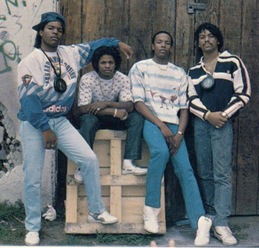 There is a story going around Facebook and Twitter like wildfire, an 8-paragraph anonymous letter under a picture of the late 1980’s hip hop group NWA (posted at the end of the article). The writer of the letter, claiming to be a former record executive, reveals the intimate details of a secret meeting in 1991 that changed the face of hip hop. The short version is that this meeting consisted of about 30 of the most powerful record execs at the time, and then some unidentified serious dudes in suits. Everyone was made to sign Confidentiality Agreements, and then told that the big hitters in the room recently invested in the private-sector prison industry, and had a vested interest in filling those prisons. To ensure that business was good, they revealed a master plan to promote gangster rap, which would create gun violence, drug epidemics, and generally the breakdown of society among the African American population, and lead to unprecedented numbers of arrests and, therefore, filled prison cells. And profit. It’s a neat, convenient, horrific story, and we are ravenous over internet-based conspiracy theories these days, but I don’t believe it. Don’t get me wrong – I’m not saying those mysterious, serious men in suits (I assume who were CIA or FBI), and those embedded in the nexus of power and ultra wealth in this country aren’t capable of such things, or have done worse. But this story has a lot of holes. Let’s take a look at it from a musical, and then a social perspective. First off, the letter that this anonymous music exec wrote; he talks about the guilt he’s felt over the last twenty years for taking part in such a meeting, for steering rap towards the gangsta genre. But he was scared to talk about this meeting at the time because of the Confidentiality Agreement he signed, and even more so the repercussions he might face from the CIA or FBI (men in suits), who pulled guns at one point at the meeting. Now he’s decided to come forward, so he wrote this letter, excluded his name, and emailed this letter to a journalist. He's left a lot of breadcrumbs for someone who wanted to remain anonymous. How hidden is his identity if he’s told is that he was one of 30 major decision makers in the music industry working for one of the big firms in 1991, who came over from Europe in the 1980’s, and quit in 1993? Ummm…that’s about as anonymous as a fat guy hiding behind a skinny tree. I’m sure anyone in the music business at that time could label this guy (if he exists) or any teenager with 15 minutes and Google could compile a short list. And to speak to the fact that he was European. Europeans learn English in elementary and secondary school, where they are drilled in British English. Old habits die hard, which come out in their writing in subtle ways, like using ou instead of o in words like cataloug instead of catalog. I don’t see any signs that the person who wrote this letter was schooled in British English. Granted, that might be a reach, and I’m just enjoying playing junior detective. We’re talking about a secret agenda to promote violence among the black community and fill prisons for profit (unfortunately, that part is very believable), so would they really trust a couple dozen outsiders to sit on this information with only a Confidentiality Agreement? A mere piece of paper? According to his account, a gun was drawn at the meeting, but there hasn’t been one single documented conversation, slip-up, or leak to the media about this in the ensuing 20+ years? Shaky, at best. The story was supposedly emailed to someone named “Ivan” at the website Hip Hop is Read in 2012. I don’t know this person or this site and I’m sure they do a great job, but if you were a high-power music exec with a shaking confession that you’ve been holding on to for 20 years would you first go to….Hip Hop is Read.com? No offense to them, but I tend to believe an email to Rolling Stone, The Source, The LA Times, etc. would come to mind first. In fact, if you were in the industry that long you’d know just about every major music writer, and could disseminate this information with a lot more credibility, in a much less clumsy fashion, by picking up the phone and calling an old friend, off the record. But let’s say that the Suits and the shady civilians who orchestrated the meetings wanted to promote gangster rap. All they needed to do was influence record company CEO’s in private, who then would create legitimate mandates within their own companies. They wouldn’t need to disclose their malfeasance to a room full of strangers, and take on exorbitant liability. The bad guys are sneakier than that. Their logic fails in other regards. Supposedly they were going to promote gangsta rap in the music industry, which would grow like wildfire and create horrific societal problems and increased crime rates in the black community, and therefore fill their prisons. The only problem is that both of those conditions already existed in 1991, gansta rap and horrific societal problems in the inner cities and black communities. 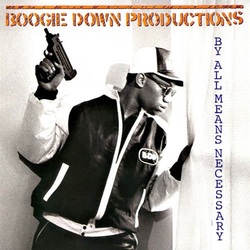 This is where scrutiny of the music industry comes in: I've been a hip hop head since 1986, and for those of us old schoolers, we know that the expression of political strife and inner city conditions was present in rap all the way back to KRS One with By All Means Necessary (RIP, Scott LaRock) in 1987, mirroring Malcolm X’s black power mantra. Too Short was already firmly on the scene, and even if his music wasn’t political it definitely spouted the misogyny and anti-societal messages that later came to define the Gangsta Rap movement. Ice-T was singing about killing cops, not playing one on NYPD Blue. His 1986 song “6 In The Morning” is often regarded as the first gangsta rap song, and it would be hard to argue. Philadelphia’s Schooly D was rapping about shooting people and drug use four-albums deep by 1991, (I still love his song Saturday Night). I seem to remember Paris and Just-Ice and the Ghetto Boys as pretty damn hard. 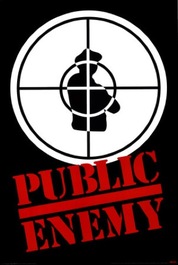 Who can forget Public Enemy, perhaps my favorite hip hop group of all time, the first group to bring psychological warfare to your radio. They disseminated edu-tainment to the masses with scores of militant, pro-black songs like Fight the Power, Black Steel and the Hour of Chaos, Can’t Truss It and Who Stole the Soul on their albums It Takes a Nation of Millions to Hold us Back, and Fear of a Black Planet. They were smart, angry, and talented, producing bass-shattering music that was a decade ahead of its time. 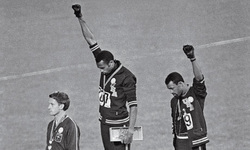 These pro-black, politically charged albums were more an outreach of the Black Panthers and Malcom X in the 1960’s and 70’s than they were the birth of gangsta rap. They expressed the ethos of revolution, musical speeches over beats that had everything to do with fists in the air at the 1968 Olympics and the teachings of Huey and Martin, not a gangsta lifestyle of alcohol and drugs, senseless violence, and turf wars. 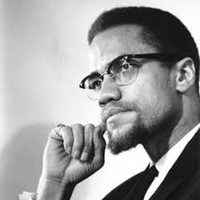 So when did the Gangsta movement start? Someone who doesn’t know much about hip hop might say right around 1991, the time of this clandestine meeting. But all the way back in ’87 or ’88 NWA had taken hold as the first West Coast group that resonated on the east coast, (at least for me). But Niggaz Wit Attitudes was banned from most mainstream American radio stations, which goes against the theory that the music execs promoted them to fulfill their agenda. Soon, NWA splintered as Doctor Dre and the DOC (who can forget “I am not illiterate no not even a little bit!” in It’s Funky Enough) left for Death Row Records, and an epic beef with Easy E ensued.  Let’s look at the charts back in those days to see what kind of rap groups were popping up, and if/when there is evidence of gangsta rap first taking hold in popular culture, to the outcome of creating societal problems and increasing incarcerations. The anonymous internet story states, “As the months passed, rap music had definitely changed direction…gangster rap started dominating the airwaves. Only a few months had passed since the meeting but I suspect that the ideas presented that day had been successfully implemented.” To test this, I did a search for top 100 Billboard singles for each year from 1989-1995, to track the mainstream rise of gangsta’ rap:
Ice Cube’s songs were definitely the hardest of that bunch so far, but I would argue that he was recounting the perils and pleasures of every day life in South Central LA, not going out of his way to promote his own personae as a violent gang-banger. The other songs were smoothed-out party ballads, even if they did intimately document inner city, West Side life. Perhaps the G Funk era hit the charts before Gangsta Rap? This was two years after the alleged meeting in 1991, so surely record execs with that much influence could have already steered popular music in that direction. They were making money, for sure, but even those groups were considered incredibly risqué for the era. But I fail to see the rash of people joining the Crips and the Bloods and selling drugs and shooting each other because they listened to Nothing But a G Thang. Let’s keep looking at the charts:
The years and decades to follow brought us a lot of “studio gangstas,” but also a legitimization of gangsta rap thanks in part to Suge Knight at Death Row Records. But he definitely wasn’t part of the music establishment, and the only “investment” he had in prisons was money in his own commissary. (Sorry Suge…I mean, Mr. Knight, I couldn’t resist. Please don’t fuck me up.) I see no musical evidence of a shift toward mainstream gangsta rap in 1991 and 1992 spearheaded by the establishment. 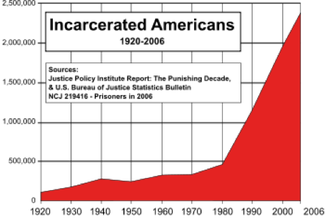 So let’s look at this internet story through a societal lens. For this account to have credibility, there would need to be a significant rise in incarceration rates, particularly among young African Americans, in the years following 1991. Anyone who can follow a red line can see that the tsunami of increased incarcerations started 10 years earlier, and the 1990’s only followed the established (although disturbingly meteoric) trend of throwing our own citizens in prison. In fact, from 1980 to 2008, the number of people incarcerated in America quadrupled-from roughly 500,000 to 2.3 million people (today the US has only 5% of the world’s population but 25% of it’s prisoners). However, there is no evidence of a shifting cultural morality causing that, especially post 1991. I think we can all agree that if radical rap music was going to influence anyone it would have been black (in those days) teenaged males. But a look at the percentage of black male high school dropouts per year actually shows a significant decrease in the years 1990-1996, when this gangsta-rap-to-prison plan was supposedly in place: Percentage of Black Male High School Dropouts. 1972 22.3% 1980 20.8% 1985 16.1% 1990 11.9% 1995 11.1 (Note: Holy shit, dropout rates in the 20 %’s in the 1970’s and early 80’s?!) Again, there is no credence to the myth of this secret meeting that changed rap and filled our prisons. We can write a whole volume of books on the sociological conditions of African Americans, the conscious construction of the permanent underclass in America, and our astronomical incarcerations rates. But those will be filled with statistics about profiling, police corruption, poverty, and the shift in criminal codes and sentencing that red-lined blacks into cells, not secret gatherings. Remember that the 1980’s and early 90’s were some desperate times for inner-city minorities in Los Angeles, the epicenter of both the music industry and gangsta rap. Neighborhoods were plagued with blight and hopelessness that one would expect to see in Third World countries. Crack cocaine was infesting the city, and gangs spilled blood over almost every street corner in the ‘hood with a new vengeance. 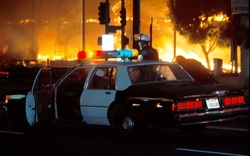 Arguably, the most dangerous gang wearing blue wasn’t the Crips, but the LAPD. Instead of protecting and serving, they terrorized the city with a well-document reign of corruption, lawlessness, vigilantism, embezzling, and orchestrated violence toward civilians. The tyranny of the LAPD and nightmarish conditions in the hood came to national consciousness on March 3, 1991, when the police were serreptitously videotaped beating Rodney King to a pulp after a car chase. The city held its collective breath as the LAPD police officers went to trial, and then on April, 29, 1992 the verdict came down: the officers were acquitted of the charges. The people couldn’t take it anymore. The city went crazy. And it burned. 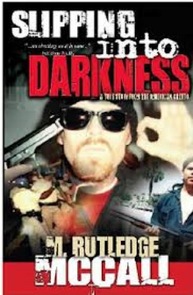 By the time the US Army, Marines, and National Guard restored order 5 days later, the death toll was up to 53 people and more than 2,383 were injured, most of them civilians. A large portion of south central LA was in ashes, with more than 7,000 fires, damage to 3,100 businesses, and nearly $1 billion in financial losses. If you want to read an insane account of the gangbanging conditions in LA and the riots, from someone who was there, check out Slipping into Darkness by M. Rutledge McCall. 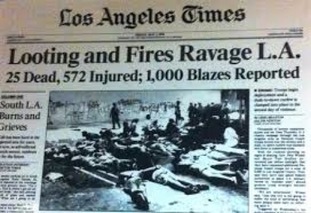 But does this have anything to do with music? No. Did songs create these conditions? Hell, no. I find this kind of internet story extremely dangerous to the African American cause, which, by osmosis, is also the cause of human rights and the colored experience in America. It lays blame to the fact that we have the highest incarceration rates of any country in the history of the world on a musical form, gangsta rap, and by proxy the subset of young, black, males who embraced that music. So you’re telling me that if these record execs met and decided to promote Country Western music, instead, our jails would only be half-filled and these societal issues in the hood would be less enflamed? That’s ridiculous, and insulting to the plight of real people who struggle against the throat-lock of disenfranchisement every day. What this internet account has achieved, yet again, is to divide and conquer our attention from the root causes: endemic generational poverty, institutionalized racism, a rotten-to-the-core system of policing and incarcerations, our violent predilections in this country, and a culture of crime and violence that needs to be reprioritized toward education, family, and a new code of morality. Instead, we’re revisiting the chicken-and-the-egg controversy: does society morph its norms to the messages portrayed in media and entertainment? Does music create behavior? Again, that is another issue for another article, but to put that notion in proper perspective, this is your homework: Go into the hood in any city and ask the first person you see hanging out on the corner wearing a red bandana if they are living that lifestyle because of the songs they hear on the radio. Judging by the look on their face, you’ll quickly realize how ridiculous that postulate is. And then run. 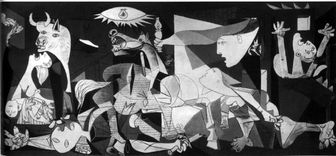 As I was writing this, contemplating the themes of depravity and violence in media and its relationship with art, I recalled Pablo Picasso’s Guernica. It’s an ultra-violent depiction of the bombing of the village of Guernica, in Basque Spain, that he produced in 1937. Yet, I’m fairly certain that no one ever accused Picasso of creating a cultural shift toward violence and lawlessness with this mural. Why not? Is it because our culture has become so intellectually lazy that we can’t even manufacture racist stories correctly anymore? Perhaps, music execs made far more money selling music than they did filling prisons. Perhaps, Gangsta Rap, with its violent, desperate, and impoverished musical predilections, was a reflection of what these young artists saw on the streets everyday, and that America has far bigger problems than censoring the musical account of that reality. Is it possible that things were fucked up to begin with, and then art imitated life? -Norm Schriever [email protected] The original internet story: | If you want to read more by Norm Schriever:Comments or |
|
53 Comments
Eric Noel
3/30/2013 06:06:52 am
Love this !!!!!
Reply
Knowledge Reign Supreme over nearly every One!
7/25/2014 02:27:14 pm
This fool acts like he was part of the wrong side of the meeting. Either that or he is under 25. Please STFU. Whoever wrote this page is lost.
Joel
6/17/2015 04:40:12 am
CCA has also been a member of the American Legislative Exchange Council (ALEC), the free market nonprofit that has been making cookie-cutter laws to advance many conservative social and political goals. Although CCA left the council in 2010, according to The Arizona Republic: "for the past few decades, a CCA executive has been a member of the council's [task force that] produced more than 85 model bills and resolutions that required tougher criminal sentencing, expanded immigration enforcement and promoted prison privatization.... CCA's senior director of business development was the private sector chair of the task force in the mid to late 90's when it produced a series of model bills promoting tough-on-crime measures that would send more people to prison for a longer time."
Reply
Norm Schriever
3/30/2013 06:07:56 am
Thanks Eric! Feel free to share.
Reply
Michael
8/10/2014 09:44:27 am
Norm, I do have to correct you on Schoolly D, PSK, What Does it Mean inspired Ice T's 6 in the Morning. Schoolly D is the original gangster rapper. Good article though.
Reply
Omar
4/6/2013 09:40:53 am
Pablo Picasso created Guernica to show the reality of war, to show how ugly and violent it is, not to promote it...
Reply
ellecee
11/22/2013 11:07:14 pm
That was the point the writer was trying to make. Art imitating life, not the other way around.
Reply
pete snypes
3/10/2015 03:44:07 am
I've heard it all..control of images for use of propaganda has been going on since fire..you control the media.. you control the population
Jim
11/23/2013 12:21:18 am
Thats a good point ellecee. The system is manipulating us to believe what they broadcast.
Reply
Aine
6/9/2014 07:02:12 am
However the media saturation at the time this was created was nowhere near the level of the early 80's/90's/00's
Reply
Synchotronic
5/15/2013 10:28:14 am
Finally someone who feels the same way as me! Terrific article, I wish it was shared as much as the original anonymous letter. Thank You.
Reply
Nick
6/5/2013 03:06:29 am
Excellent article. You broke down the issues with amazing clarity and insight. Thank you.
Reply
DW
7/27/2013 08:44:52 pm
I like your rebuttal. However, in defense of the original article, there has to be some validity. Otherwise how do you explain the decline of Conscious based Hip Hop in the 90s. Corporate media sets trends. They decide not what the people want, but what they think the people should have. You mentioned Kris Kross and MC Hammer in your comparisons, but that's a far stretch from gangsta to commercialized fun and dance rap. But you had artists like the Roots and Tribe Called Quest and several others that labels weren't putting a lot of promotional dollars behind. It's easy to write an artist off by saying that's not what was hot at the time, but again, the labels set the trends. And we wonder why today, Hip Hop catches a bad rap (no pun intended).
Reply
penguin
9/17/2013 09:48:59 pm
As the author of that letter said, he was not a rap fan. Probably hadn't paid closer attention to it despite being in the music industry.
Reply
Jim
11/9/2013 11:57:29 pm
Norm you are wrong. The original article made sense in the 90's and it still does. Explain how we went from Stevie Wonder and the 5th Dimension to kill, kill, kill in less than 15 years. Believe me I didn't want to listen to Body Count but when I did it didn't bother me like I thought it would. It is different now. Plus if you are a journalist you should know the shadow government works from all angles. To conclude you hang yourself with your own facts, plus the pictures of gangsters, guns, and gold crowns you adorn your article with ..
Reply
Norm
11/28/2013 09:01:08 pm
Interesting take - but I think you miss the premise I rebuked - that there was a secret meeting to change rap suddenly to the violent so they could fill prisons. That is what I rebuke. There is just no musical evidence of that DIRECTLY after the meeting, like they said it would happen, nor does it make sense that would be the easiest way to fill prisons. You also point out that the music went from Stevie (love him) to violent rap within 15 years. I think the same can be said for video games - Miss Pacman to Mortal Kombat, etc, and also movies. So maybe it was a greater cultural shift, not based on this meeting? Also Im not a journalist, just a dude who loves hip hop and studies culture. :-) Lastly, you're awesome for reading and participating with some excellent points and your take on it - cheers!
Reply
Jim
1/26/2014 12:35:46 am
Jim
1/26/2014 12:36:17 am
Norm! Thanks for responding, didn't see it until I followed Mikey's recent post. I didn't mean/ imply rap suddenly changed, it didn't. As you say it's just like the video games they took a sinister path eventually and why? I kind of think you contradict yourself there admitting games took a turn and rap .. did or did not? It's not just about prisons it is for cultural control. People never sung about drugs & murder historically. People don't wake up wanting to shoot up the next country and burn villages (war), those ideas come from somewhere. I agree with the article that ideas are imposed and somehow brought to fruition, it starts with suggestion. The same happened to Disney. I do not think Ed Eisner is ethical and he made money just like BET. Compare 70's Disney movies to todays promiscuity films, it's bad. Google 'disney is evil' and see what happens. Try google images, they promote promiscuity, it's sick.
Jim
1/26/2014 12:36:56 am
Norm! Thanks for responding, didn't see it until I followed Mikey's recent post. I didn't mean/ imply rap suddenly changed, it didn't. As you say it's just like the video games they took a sinister path eventually and why? I kind of think you contradict yourself there admitting games took a turn and rap .. did or did not? It's not just about prisons it is for cultural control. People never sung about drugs & murder historically. People don't wake up wanting to shoot up the next country and burn villages (war), those ideas come from somewhere. I agree with the article that ideas are imposed and somehow brought to fruition, it starts with suggestion. The same happened to Disney. I do not think Ed Eisner is ethical and he made money just like BET. Compare 70's Disney movies to todays promiscuity films, it's bad. Google 'disney is evil' and see what happens. Try google images, they promote promiscuity, it's sick.
tonyteeth
11/26/2013 07:15:11 am
This article completely negates the point of anonymous is letter. he's making it the argument that these execs and men with guns didn't cultivate these conditions they capitalized on them
Reply
EC
12/14/2013 02:20:08 am
I liked your article a lot. I thought it was thoughtful, well written, and brought up some very valid points. However, I would like to just express some of my own thoughts on why I am not ready to completely dismiss this conspiracy. You have some good statistics to support your argument but there are other statistics that definitely need to be considered. I believe it would be important to look at the overall popularity of gangster rap in the popular culture. This should be done by looking at record sales, chart listings, etc. as time went on. I do not know the numbers myself but was once informed in a college musical history course that rap became the most popular form of music as the 90s progressed. It makes sense that many young African Americans who could relate to these artists would gravitate towards the music but I find it odd that it was being promoted the way it was. The gangster environment was a widespread problem with far too many victims but it did not have a major effect on the majority of Americans. It seems strange that certain companies would put so many promotional dollars into something that does not relate and would not seem to appeal to the majority of Americans. When looking back at it, it's even stranger that it actually worked. Many gangster rap songs would go on to be many of the most popular songs of the 90s & 2000s. Many are even considered classics by an overwhelming number of Americans. I would also like to point out that any cultural movement takes time to accomplish so it does not surprise me that it took several years for the popularity of gangster rap to gain significant traction. It is also important to look at the number of privatized prisons as time went on (percentage and quantity) in addition to incarceration rates, prison sentences, types of crimes, etc. Even when compiling all this hard to collect information together, we may still not get a clear answer either way. I suspect that we would most likely find stats that support this story in addition to stats that weaken it.
Reply
EC
12/14/2013 02:37:47 am
I would also like to add that the poverty rate went down during this period as well because of the tech boom. Despite the wealth of Americans rapidly going up and the largest economic boom in the history of the world, prison incarceration numbers continued to skyrocket. It would also be important to analyze this with population growth. It's also strange that record companies would spend so many promotional dollars on rap music because of the considerable wealth disparity between African Americans and the majority of Americans. It just doesn't make sense that they would promote the music of the impoverished minority to the point where it became the most popular form of music. I understand that corporations have the goal of making money so it is inevitable that they would promote gangster rap because they will promote anything to make a dollar, even extra ones. However, it seems strange that it exploded the way it did a period of such economical and financial growth. In addition to being in a period when crime rates were finally beginning to drop.
Reply
Sebastian
12/30/2013 12:26:04 pm
Just take this into consideration!
Reply
EC
1/2/2014 12:32:30 am
These are some really interesting reports and help form a more clear picture. Thanks for linking these reports.
Reply
Carole
1/4/2014 09:45:37 am
Just a small point… you talk about the spelling used by the anonymous author… how he should use English spelling? I beg to differ.
Reply
Tomii Tron
6/8/2014 08:59:19 am
Spelling isn't the case and point as he said just a noticeable flaw, as a duel citizen of the US and Canada (where EU style english is taught) there are very relevant differences, because I was taught in Canada and even after 15 years in the US, I still spell using the "ou" in words that only require "o" in the US.
Reply
reese
1/5/2014 12:08:53 pm
Nice Breakdown but a lot of the groups you've placed into ganster-rap catagory don't belong & an artis like too short pushed 20 underground hits & never got a NATIONAL push as you see after this so call conspiracy theory. Public enemy & BDP should never even be a part of ganster talk cause it was never their message. You sound like a distraction from what's appearent. Master P, C murder, NWA & that dogg pound started a national swing in hip-hop. Before then things were reginal. What they played in the south wasn't in the north. What was on the west coast wasn't on the east. Hell DC even had its own called GoGo. Second is why lie. If it wasn't true & the person wasn't feeling some remorse seeing the impact of that meeting then where's the story coming from & why. What is his gain other than confession for the soul ? As a marketer the data on what the music was doing in regions was available so for a group to take on this feat is very realistic and actually adds up.
Reply
FH
1/9/2014 11:40:09 am
I ran across this story today and feel compelled to comment although the story has been circulating for some time. In all the comments and analysis I've read, everyone seems to miss the real objective of this meeting.
Reply
Mikey Fink
1/25/2014 10:16:07 am
Robert Johnson, a lobbyist and "friend of Bill" as they called him, started BET network with $13,000 dollars. The network was built from nothing on free content from record labels, featuring sexual explicit content, which was recently permitted after deregulation by the Clinton administration. Johnson would pay nothing for the video, and sell them to cable network nationwide for millions per minute.
Reply
Mikey Fink Again
1/25/2014 10:19:24 am
by the way.. Robert Johnson sold BET for over $2 Billion dollars.
Reply
AL S
1/26/2014 10:06:09 pm
It's 'Catalogue'
Reply
Jim
5/12/2014 09:57:00 pm
Here is another spin on the subject, Professor Griff speaks. I hope it isn't off target.
Reply
DREG
6/5/2014 05:52:04 am
Nice article. I've been reading up on the theories about this letter on gangsta rap. Now the spike in prison population was in direct response to the federal government's War on Drugs. I don't think a lot of the groups mentioned were involved with the so called gangsta rap take over. Groups like NWA and the Geto Boys were rapping about what they knew. I think the exploitation of rap music didn't happen until the late 90's. That's when the glamorous lifestyle of drugs, money, power, violence and sex began to infiltrate into popular rap music. The political/consciousness groups disappeared and all that was left was the gangsta rap groups. I call it the end of hip hop. I also trace it back to Dr Dre's The Chronic record. The G funk era was the beginning of the end.
Reply
Phyl
6/5/2014 09:23:05 pm
So we the public will get to discern who is the donkey that will come up smelling like roses upon this rap heap so do not tell us what to believe Tony Rey for we have had enough of this business is booming horse crap from these megalomaniacs who are so into exploiting our young ones for riches and material wealth for only themselves. We parents get to discern what truth out there is and NOT from smart asses who think that they have the better story. It is we parents who have had to watch our kids go by the way side with all this rap crap for the past 20 years we have had to put up with. Well 2014 is about the time where there will be the infiltration of Love & light in which the behaviour of this Satanic crap of this so call music industry WILL FEEL TO ITS ROTTEN CORE that which these demonic worshipers so despise is LOVE & LIGHT is flooding the earth throughout. So get ready to suck it up muleheads!
Reply
Phyl
6/6/2014 06:03:54 am
Not to Tony Rey but to the person who likes to dump on whistle blowers by writing such article as above
Reply
tone
6/6/2014 10:00:45 am
And another key point the author overlooked, about the drugs and violence that was going on in the inner cities, was where does he think the poor African Americans got the drugs and guns??? African Americans don't own any planes or shipping docks to transport these items. They we're giving these items to self-destruct and make Billions in profits, from the people that had the Power in America and that certainly wasn't the "poor " African American folk. Music has and always will equal culture, so, it would make complete sense to have a meeting that would support a plan that distributed/sold the guns and drugs to the inner cities. The person who wrote this article cleary doesn't understand the Hip Hop/Rap culture, and futher more doesn't understand how America was built, and how the Gov. supported bills and Amendments that conspired slavery and kept Blacks from having rights they earned in America, from fighting for this country in wars and being workers in it's industries. If you need further proof of "conspiracy" just look up the original US constitution. It is in plain view and extremely well written , no need to even call it a conspiracy.
Reply
Christian
6/8/2014 11:20:46 am
Thank you.
Reply
Rick
6/9/2014 02:46:32 am
This is supreb writing.
Reply
Norm Schriever
7/27/2014 08:54:45 am
Lol why is that? I'm looking forward to your points and arguments. And I'm 42 and wasn't on the the "wrong" side of anything.
Reply
Norm Schriever
8/11/2014 11:03:53 am
Great to know - and I really appreciate your input! Thanks for reading bro!
Reply
zee
9/12/2014 12:10:32 pm
But rap music shouldn't glorify those negative conditions. If they just want to express what they've experienced, they shouldn't glorify it, because that draws people in and gets them to want the same experience so they can be like the rappers.
Reply
Anon
9/27/2014 08:14:11 pm
I think you missed the point of the article somewhat... I don't think the author was trying to claim that the boom in incarceration rates was as a direct RESULT of the music industry's changing (forcing..), more that they came to support and invest and ultimately profit as a result, doing what they could to help expedite the process.
Reply
klarno
1/6/2015 02:31:03 pm
British English spelling of "catalog" is "catalogue," not "cataloug".
Reply
Deborah
1/18/2015 01:11:20 pm
It is "catalogue" not "cataloug":. The ou is found in words like "color" and "neighbor", thus you get "colour" and "neighbour". Having learned British English growing up, I can tell you that spell checkers will correct you if you try to write British English and it is just easier to let it correct your spelling when you are in America.
Reply
tom
3/6/2015 12:29:03 pm
the nonsense you are writing becomes obvious when you are pretending to identify a british english native with the the world catalog.... in british english it would be spelled catalogue... and not cataloug as you thought... we might never know what the truth behind anything is because any story can be created and then discredited due to our o so freedom of speech internet or other media... let's face it. fact is we are loosing individual rights by the day due to the war on terror and are living more and more in a police state with drones all over spying on everybody and even being killed by tthem...all accepted by the public...because we fear..and how to actually boycott? how this fear was created is up to your speculation...
Reply
josh koplin
3/11/2015 03:26:58 am
So, I have trouble believing the original story simply because it's quite vague and if someone really wanted to come forward, they would use their own name and name some of the people in the room to give it color and specificity. The whole prison industry thing seems a bit far fetched, but I would believe a story based on simply changing the subject of rap music to hip hop. The reason I see is this, rap music was violent and very political and spoke very clearly to the problems black people faced, but also the inherent problems of having a white power structure. I could see with the rodney king riots and everything else going on, someone figuring out that if rap music kept going in the direction it did, it would serve as a center around which a violent anti establishment revolution could be formed. I could see that as threatening to the power structure, and alot of wealthy and powerful people starting to feel a little uncomfortable. If you fast forward a little past when this allegedly happend, you start seeing rap music all of a sudden changing subject from politically empowering militant anti establishment rhetoric, to innocuous materialistic brand centric money centric minstrel shows. Just as black culture was getting its voice, its voice seemed to change towards something more far more vapid and completely forgetting the struggle. I lost interest in rap when I started hearing hip hop basically turn into a commercial for cognac and expensive luxury cars targeted at the black community. I did see rappers going around being far richer than their album sales would seem to let on, and seemed to think that perhaps money was flowing in from other places to buy them off or steer them in certain directions. Whether that was the FBI or just marketing people, or a combination of both, who really knows. That would be an interesting story for a real investigative reporter to actually look into and tell the story of, much like the cocaine smuggling into the LA ghetto by the CIA. Who knows how deep it goes?
Reply
Ali Sa'id Nur al-Din
6/3/2015 12:49:33 pm
If you believe this is true or not doesn't really matter.
Reply
Johnny D
1/20/2022 11:25:44 am
This article is whack. I too have been a hip hop head since 85. It all started with NWA. That's when they realized prisons were filling up. Now remember, this is about the time, run dmc tried to go gangster and was rejected. Even hammer tried to transition to gangster and was rejected. Vanilla ice was rejected because he didn't want to go gangster. When I say rejected, I mean by their own fans. We didn't know them as gangsters. We knew them as good performers. So yes, the anonymous letter does make sense.
Reply
M
7/9/2023 10:53:49 pm
"like using ou instead of o in words like cataloug instead of catalog"
Reply
Leave a Reply. |
Norm SchrieverNorm Schriever is a best-selling author, expat, cultural mad scientist, and enemy of the comfort zone. He travels the globe, telling the stories of the people he finds, and hopes to make the world a little bit better place with his words. Categories
All
Archives
October 2022
|
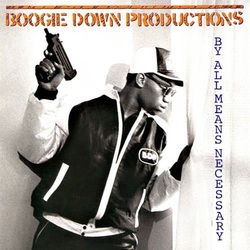
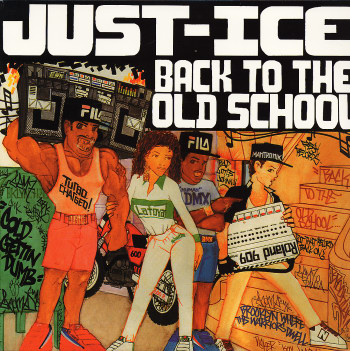
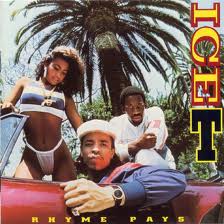
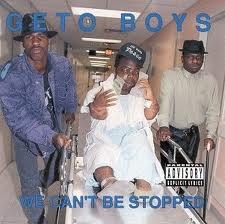
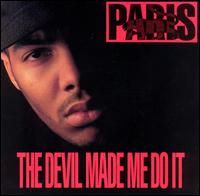
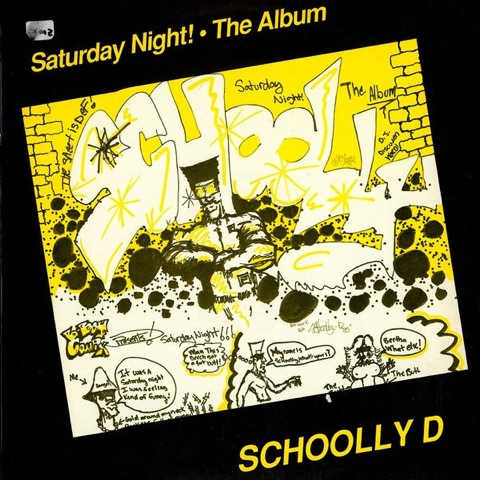
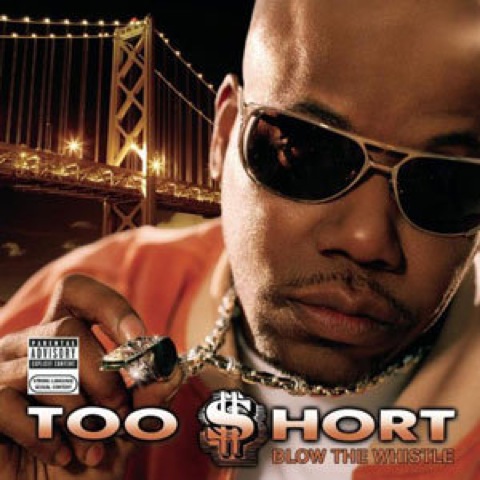
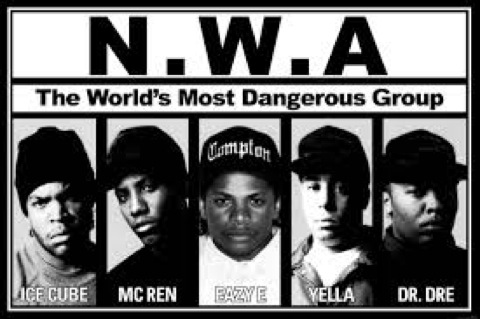
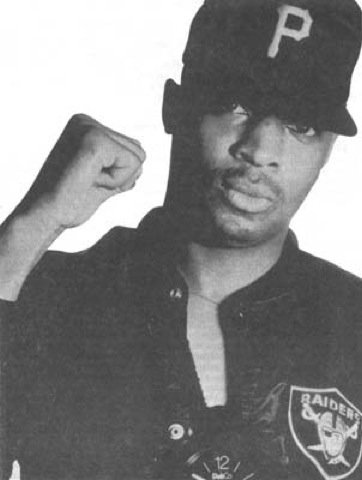
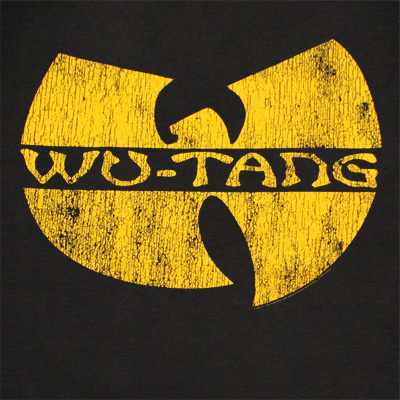
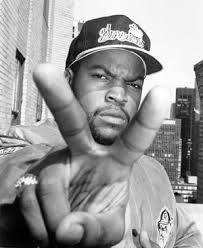
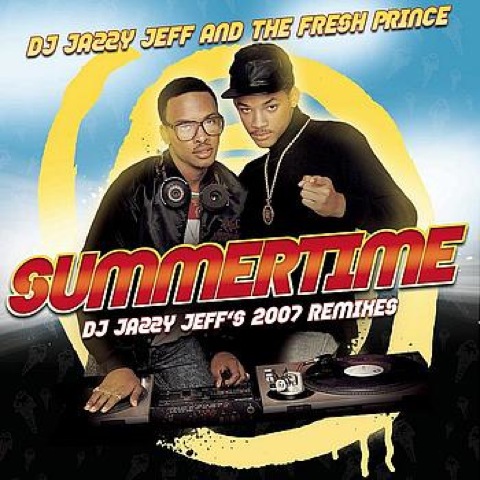
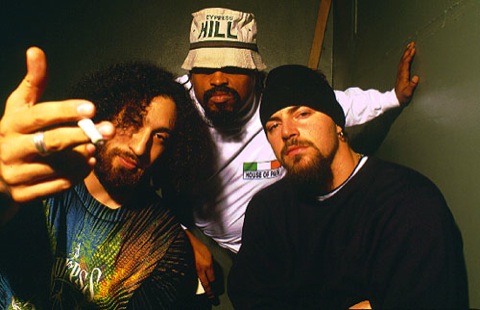
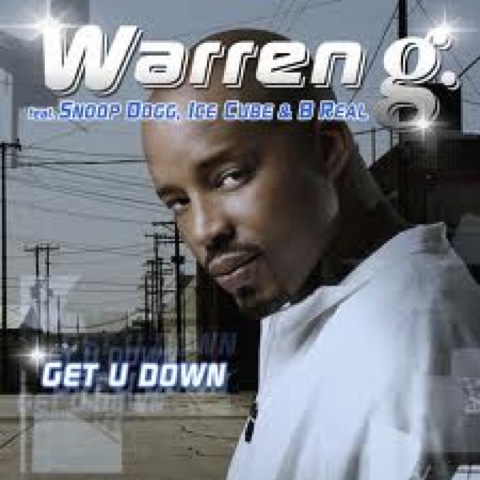
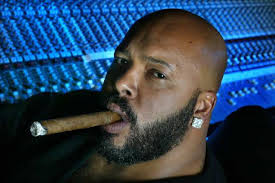
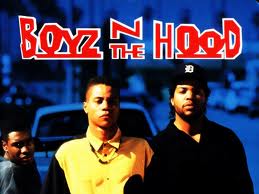
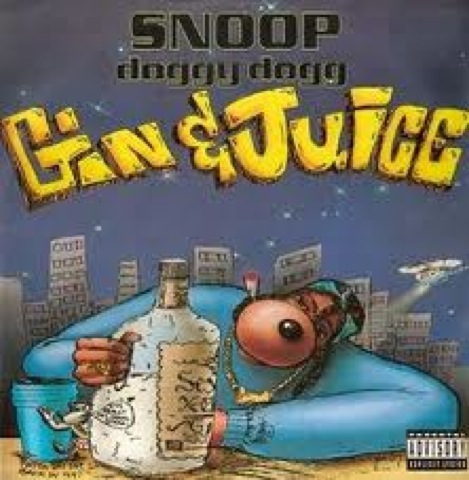
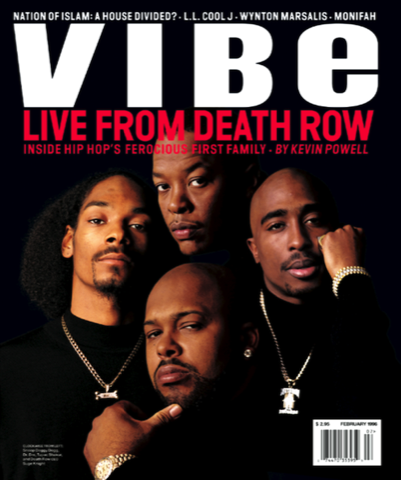
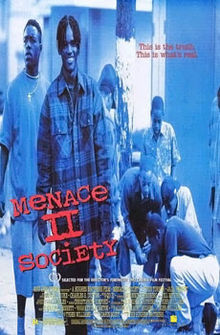
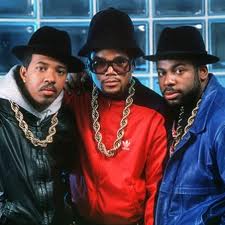
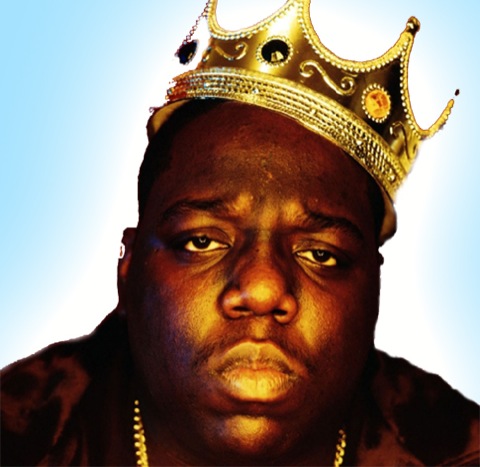
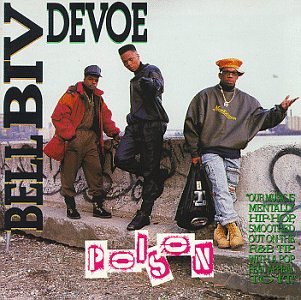
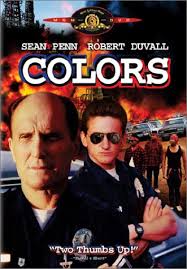
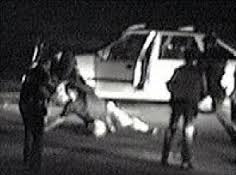
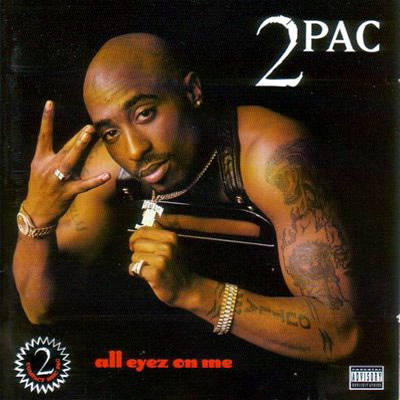
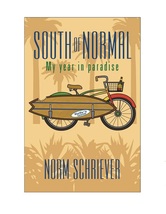
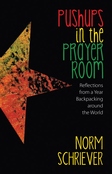

 RSS Feed
RSS Feed